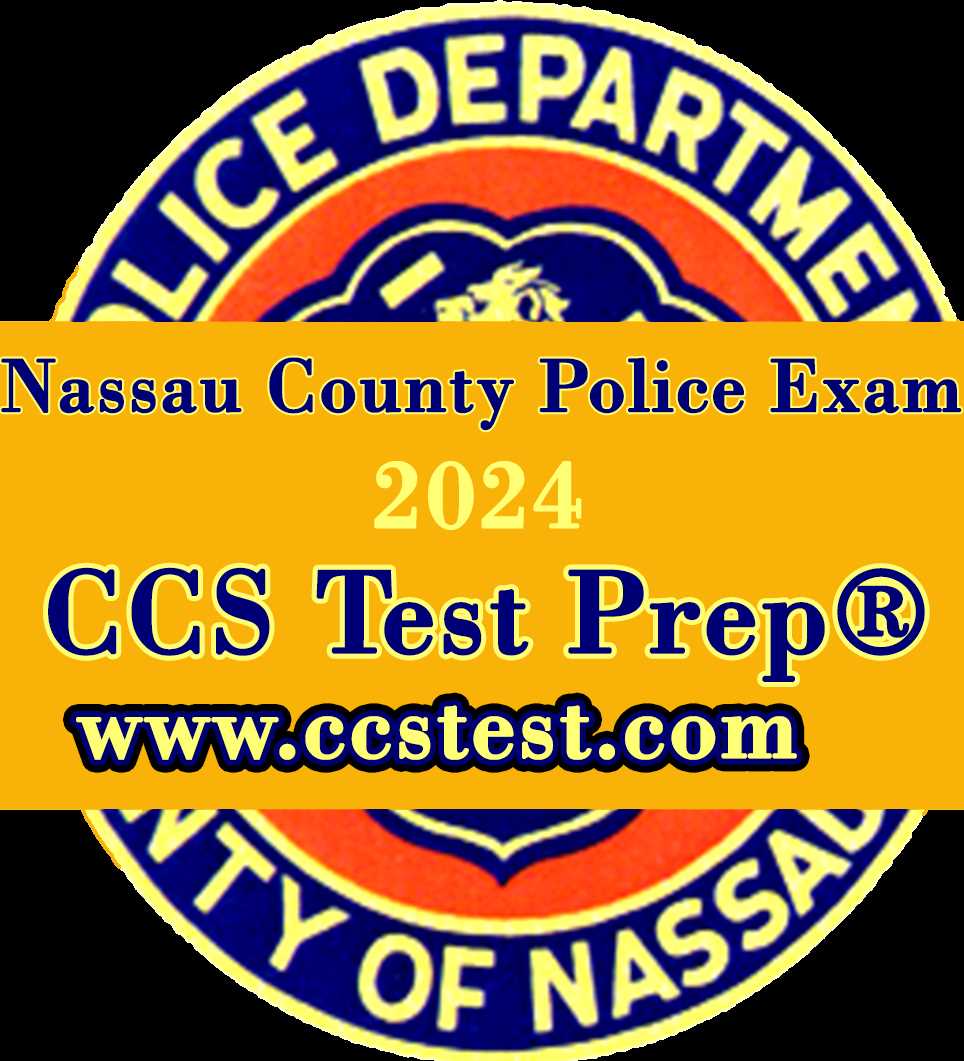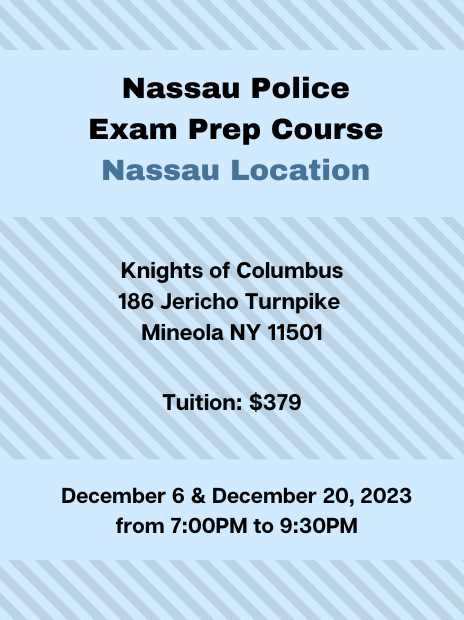
Taking the next step toward a career in law enforcement requires thorough preparation and understanding of the process. Whether you’re aiming to join a local force or advance in your career, the selection process plays a crucial role in determining your future path. This guide covers everything you need to know to succeed in the upcoming law enforcement recruitment assessment.
Understanding the requirements and the structure of the evaluation will help you approach it with confidence. From the initial application stages to the final interviews, each phase requires careful attention to detail and focused effort. Preparing adequately will not only help you pass but also stand out as a competitive candidate.
The selection procedure includes several components: a written portion, physical fitness assessments, and psychological evaluations. Each part of the process tests different skills, so a well-rounded approach to your preparation is essential. Knowing what to expect and how to prepare for each section can make a significant difference in your results.
Nassau County Police Exam 2025 Overview
The recruitment process for law enforcement positions in the region involves a series of rigorous assessments designed to evaluate candidates’ suitability for service. These assessments include various tests that focus on mental acuity, physical endurance, and psychological stability. Understanding each step and what it entails is crucial for applicants aiming to succeed.
Key Stages of the Selection Process
The selection procedure is divided into several stages, each designed to assess a different aspect of a candidate’s abilities. Here are the primary stages you will encounter:
- Application Process: Initial paperwork and eligibility checks.
- Written Test: A series of questions designed to assess logical thinking, comprehension, and problem-solving skills.
- Physical Fitness Test: Physical exercises to evaluate endurance, strength, and overall fitness.
- Psychological Evaluation: A mental health screening to ensure candidates are psychologically suited for the demands of law enforcement work.
- Oral Interviews: A final interview process where candidates demonstrate their interpersonal skills and commitment to the role.
What to Expect in the Process

Each stage of the assessment has its own requirements and standards that must be met. The written section tests a variety of skills, such as reading comprehension and logical reasoning, while the physical test measures stamina and strength. Candidates should prepare by practicing these areas well in advance. Additionally, the psychological and interview stages assess a candidate’s ability to handle stress, make decisions under pressure, and interact with others in a professional manner.
What is the Nassau County Police Exam

The recruitment test for law enforcement positions is a comprehensive assessment aimed at determining a candidate’s readiness for a career in law enforcement. This process evaluates both the mental and physical attributes necessary for effective service. Understanding the purpose and structure of this test is essential for anyone considering a career in this field.
The evaluation consists of several key components, each designed to assess a different skill set required in the role. Candidates are tested on their ability to think critically, perform under pressure, and maintain a high level of physical fitness. Success in each section of the process is necessary to move forward to the next stage.
Core Components of the Recruitment Assessment
- Written Test: Assesses analytical abilities, comprehension, and reasoning skills.
- Physical Fitness Test: Evaluates physical endurance, strength, and agility.
- Psychological Evaluation: Measures mental resilience and emotional stability.
- Oral Interview: Focuses on interpersonal skills and suitability for the role.
Each section plays a vital role in determining if a candidate is suited for the demanding nature of law enforcement work. The test is not only about passing but about demonstrating that you have the qualities and mindset to succeed in a challenging, high-stakes environment.
Eligibility Requirements for the 2025 Exam
To participate in the recruitment process for law enforcement roles, candidates must meet specific eligibility criteria. These requirements ensure that applicants possess the necessary qualifications, experience, and characteristics needed to succeed in this demanding profession. Understanding and meeting these standards is essential for progressing through the application process.
General Eligibility Criteria
Applicants must satisfy a set of fundamental conditions before being considered for selection. These conditions typically cover age, residency, education, and prior criminal record. Below is a summary of the general requirements:
| Requirement | Details |
|---|---|
| Age | Applicants must be at least 21 years old and not older than 35 years at the time of application. |
| Residency | Candidates are often required to be residents of the region or be able to demonstrate intent to move before employment. |
| Education | A high school diploma or equivalent is mandatory. Some positions may require additional college credits or a degree. |
| Criminal History | Applicants must have no serious criminal convictions. A background check will be conducted. |
Additional Qualifications

In addition to the general requirements, certain physical and mental standards must be met. Candidates should be physically fit, with the ability to pass a rigorous fitness test. Psychological assessments will also be conducted to ensure emotional and mental suitability for the role. Each of these elements is essential for a candidate’s progression in the recruitment process.
How to Register for the Nassau Police Exam
Registering for the recruitment assessment is an essential step in beginning your journey toward a law enforcement career. The process involves submitting the required documentation, paying the application fee, and ensuring you meet all eligibility requirements. Understanding each part of the registration procedure will help ensure a smooth and timely application.
Steps to Complete the Registration
To register for the selection process, candidates must follow a series of steps. These steps ensure that all necessary information is gathered and properly submitted. Below is an overview of the registration procedure:
- Online Application: Visit the official recruitment website and complete the online form with your personal and contact information.
- Eligibility Check: Ensure you meet all the criteria, including age, residency, education, and criminal background requirements.
- Submission of Documents: Submit supporting documents such as proof of education, identification, and residency, as requested by the recruitment office.
- Payment of Fees: Pay any necessary registration or processing fees via the designated online payment system.
Important Dates and Deadlines
It is critical to adhere to the deadlines set by the recruitment office. Missing a registration date or failing to submit required documents on time may result in disqualification. Be sure to check the official website for any updates on registration windows and test schedules. Early registration is often encouraged to ensure ample time for preparation.
Exam Format and Sections Explained
The recruitment assessment for law enforcement positions is structured to evaluate a wide range of skills and abilities necessary for success in the field. The test consists of multiple sections, each targeting different aspects of a candidate’s potential. Understanding the format and content of each section will help you prepare effectively and increase your chances of success.
Written Test
The first component of the process is a written test, which evaluates critical thinking, reading comprehension, and logical reasoning. Candidates are required to answer questions that measure their ability to interpret information, solve problems, and make sound decisions. This section is essential for assessing intellectual capacity and mental agility.
- Reading Comprehension: Test of the ability to understand and analyze written material.
- Mathematical Reasoning: Basic arithmetic and problem-solving questions.
- Logical Reasoning: Assessment of pattern recognition and decision-making skills.
Physical Fitness Assessment
Physical endurance is a key aspect of law enforcement duties, and the fitness assessment is designed to evaluate candidates’ physical capabilities. This section includes various exercises meant to measure strength, agility, stamina, and overall fitness. It is important to train for this portion in advance to meet the required physical standards.
- Endurance Run: A timed distance run to assess cardiovascular endurance.
- Push-ups: A test of upper body strength and endurance.
- Sit-ups: Measures core strength and stamina.
- Agility Test: A series of exercises to evaluate quickness and coordination.
Psychological Evaluation
The psychological evaluation is a critical component that helps determine whether a candidate is mentally prepared for the stresses of law enforcement work. This section typically includes a combination of written tests and personal interviews, designed to assess emotional stability, stress management, and interpersonal skills.
- Personality Tests: Evaluation of traits such as stress tolerance and decision-making abilities under pressure.
- Behavioral Assessment: Focus on interpersonal interactions and emotional responses.
Oral Interview

The final section of the recruitment process is the oral interview, which assesses a candidate’s communication skills, professionalism, and motivation. This stage is an opportunity for candidates to demonstrate their suitability for the role, highlighting their understanding of the responsibilities involved and their dedication to public service.
Key Dates for Nassau County Police Exam 2025
To successfully navigate the recruitment process, candidates must be aware of crucial deadlines and important dates. Missing a registration period or failing to show up for a scheduled test can disqualify you from consideration. This section provides an overview of the key milestones in the selection process, ensuring you stay on track from application submission to final assessments.
Important Registration and Testing Dates
The recruitment process follows a strict timeline that begins with the opening of registration and ends with the final assessment day. Below are the key dates you need to keep in mind:
- Registration Opens: Typically begins several months before the first assessment date. Make sure to register early to secure your spot.
- Application Deadline: The final day to submit your application and required documents. Late submissions are generally not accepted.
- Written Test Date: The scheduled day for the written assessment. It is crucial to prepare well in advance.
- Physical Fitness Test: A separate test scheduled a few weeks after the written portion, where candidates demonstrate physical readiness.
- Psychological Evaluation: Typically occurs shortly after passing the written and physical assessments, often involving a combination of written tests and interviews.
- Oral Interview: Usually scheduled towards the end of the selection process, after all other assessments have been completed.
Preparing for the Timeline

It is essential to stay informed about all important dates and deadlines. Be sure to regularly check the official website for any updates or changes to the schedule. Preparing for each stage with sufficient time will help you manage the process smoothly and ensure you meet all requirements on time.
Study Materials for the Police Exam
Preparing for the recruitment test requires a focused approach and the right study materials. Success in the assessment depends on your ability to understand and apply the concepts tested, whether in written form, physical tasks, or psychological evaluations. Having access to high-quality resources will help you build the skills necessary to excel across all stages of the process.
Essential Resources for Test Preparation
Different sections of the selection process require different types of preparation. Below are some key resources and materials that will help you succeed:
- Study Guides: Comprehensive guides that cover the topics and skills tested in the written portion, such as critical thinking, logical reasoning, and reading comprehension.
- Practice Tests: Simulated tests that mimic the real assessment, allowing you to familiarize yourself with the format and time constraints. These can be found in many prep books or online platforms.
- Physical Fitness Plans: Structured workout programs to help you build the strength, endurance, and agility required for the physical tests.
- Online Resources: Websites, video tutorials, and forums that offer practice exercises and tips for both the written and physical sections of the process.
Additional Materials for Mental Preparation
In addition to traditional study materials, it’s important to focus on psychological and stress-management strategies. These resources will help you stay calm and focused under pressure during the assessment:
- Psychological Test Preps: Books or online courses that help you prepare for the psychological evaluation, focusing on emotional intelligence and situational judgment tests.
- Mental Health and Stress Management: Techniques and guides on managing anxiety and maintaining clarity of thought during high-pressure situations.
By combining these resources and dedicating time to focused practice, you’ll be well-equipped to tackle all aspects of the selection process.
Physical Fitness Test in the Police Exam
The physical fitness test is an integral part of the recruitment process, designed to assess a candidate’s physical readiness for the demanding tasks involved in law enforcement. This portion of the assessment evaluates various aspects of physical strength, endurance, and agility, ensuring that only those who meet specific fitness standards progress further in the selection process. Preparation for this section is crucial for candidates aiming to perform at their best.
The test typically consists of several exercises that simulate the physical demands candidates will face on the job. From running to strength exercises, each component of the fitness test targets different aspects of physical ability. Candidates should focus on building endurance, strength, and overall fitness in order to meet or exceed the required standards.
Components of the Physical Fitness Assessment
Each section of the test is designed to assess different elements of physical fitness. The following exercises are commonly included in this part of the process:
- Timed Running: A distance run or shuttle run designed to evaluate cardiovascular endurance and stamina.
- Push-ups: Tests upper body strength and endurance, requiring candidates to perform as many push-ups as possible within a set time.
- Sit-ups: Measures core strength, with candidates required to complete as many sit-ups as they can in a specified time frame.
- Agility Drills: A series of exercises that evaluate coordination, balance, and the ability to change direction quickly.
Preparing for the Fitness Test
Training for the physical fitness test requires a well-rounded workout regimen. Focus on improving cardiovascular endurance through activities like running or cycling, build strength through bodyweight exercises, and incorporate flexibility and agility drills. Consistency is key–start your preparation early to gradually increase your fitness level and ensure you can meet the physical demands of the assessment.
How to Improve Your Exam Score

Achieving a high score in the recruitment assessment requires more than just basic preparation. Success in the test comes from understanding the format, practicing regularly, and focusing on the areas where you need the most improvement. By adopting strategic study methods and enhancing your performance in key areas, you can increase your chances of scoring well and advancing in the selection process.
Effective Study Techniques
To improve your score, it’s essential to have a structured study plan that focuses on the areas tested in the recruitment process. The following study strategies will help you boost your performance:
- Consistent Practice: Regularly practicing with mock tests will help you familiarize yourself with the test format and question types, making you more comfortable on the actual test day.
- Reviewing Mistakes: Analyze your mistakes from practice tests and focus on improving those areas. Understanding where you went wrong will allow you to refine your approach and avoid similar errors in the future.
- Time Management: Practice answering questions within the time limits to build your speed and efficiency, ensuring that you can complete the entire test within the allotted time.
- Focused Physical Training: For physical assessments, a targeted workout plan will help you improve strength, endurance, and agility. Regular physical training tailored to the test requirements will ensure better performance.
Performance Enhancement Tips
Improving your score also requires focusing on mental preparedness and overall well-being. Here are some additional tips to help you perform at your best:
| Tip | Description |
|---|---|
| Get Adequate Rest: | Ensure you are well-rested before the test day. Lack of sleep can affect your concentration and decision-making skills. |
| Stay Calm Under Pressure: | Practice stress-management techniques, such as deep breathing or visualization, to remain calm and focused during the test. |
| Prepare Mentally: | Mentally rehearse the process. Visualizing yourself succeeding can boost confidence and reduce anxiety. |
By combining thorough study with physical and mental preparation, you can significantly improve your performance and enhance your chances of passing the recruitment assessment successfully.
Understanding the Written Exam Content
The written portion of the recruitment assessment is designed to evaluate a candidate’s ability to think critically, solve problems, and process information efficiently. This part of the test examines various cognitive skills, such as reading comprehension, logical reasoning, and basic mathematics. Preparing for these content areas is key to performing well and advancing through the selection process.
Key Areas Covered in the Written Test
The written assessment is typically divided into several sections, each focusing on different abilities necessary for the role. Here are the core areas usually included:
- Reading Comprehension: This section assesses your ability to read and understand complex materials. You may be required to read passages and answer questions based on their content, identifying key details and drawing inferences.
- Logical Reasoning: You will face questions that test your ability to recognize patterns, draw conclusions, and solve problems using logic. This section helps measure your analytical thinking and decision-making skills.
- Mathematical Skills: Basic arithmetic and word problems will evaluate your ability to solve simple mathematical equations. Familiarity with basic algebra and geometry may also be required in some cases.
- Situational Judgment: This section presents hypothetical scenarios to assess how well you can make decisions in high-pressure situations. It tests your judgment and ability to evaluate the best course of action in various contexts.
Study Tips for Written Assessment Success
To succeed in the written test, it is important to practice regularly and focus on your weak areas. Below are some effective study techniques to improve your performance:
- Take Practice Tests: Complete mock exams to get a feel for the test format and time constraints. This will also help you identify the areas you need to focus on.
- Read Widely: Regularly read diverse materials, such as articles, essays, and news reports, to improve reading comprehension and speed.
- Review Basic Math Concepts: Brush up on fundamental math skills, including solving word problems, basic geometry, and percentages.
- Analyze Logical Puzzles: Practice solving logic puzzles and reasoning games to sharpen your critical thinking and problem-solving skills.
By thoroughly understanding the content areas and practicing strategically, you can significantly improve your performance on the written portion of the selection process and increase your chances of success.
Common Mistakes to Avoid on the Test
While preparing for any recruitment assessment, it is important to be aware of common errors that can undermine your performance. These mistakes can be made unintentionally, often due to lack of preparation or mismanagement of time. Understanding what to avoid and implementing strategies to stay focused will greatly increase your chances of success.
Key Mistakes to Watch Out For
Many candidates make similar errors during the selection process, which can affect their scores. Here are some of the most common pitfalls:
- Underestimating Time Constraints: Many test takers fail to manage their time effectively and spend too long on a single question, leaving insufficient time to complete the entire test. Practice pacing yourself during mock exams to avoid rushing through later sections.
- Skipping Instructions: Failing to carefully read and follow the instructions for each section can result in unnecessary mistakes. Ensure you understand exactly what is being asked before you begin answering each question.
- Not Reviewing Your Work: In the rush to finish the test, many candidates neglect to review their answers, potentially overlooking simple mistakes. Always allocate time at the end to go over your responses and make any necessary corrections.
- Neglecting Physical Preparation: While the written portion of the assessment is important, many candidates neglect physical preparation for fitness tests. Failing to train adequately for strength and endurance challenges can hurt your performance in these areas.
- Overconfidence or Anxiety: Some candidates enter the test overly confident, thinking they can breeze through without enough preparation, while others may experience performance anxiety. Both extremes can negatively impact focus and performance. Stay calm, prepared, and confident in your abilities.
How to Avoid These Mistakes
To minimize the chances of making these common errors, consider the following strategies:
- Practice Under Test Conditions: Simulate test conditions by taking timed practice exams. This will help you get used to the pressure and improve your time management skills.
- Review Instructions Carefully: Always take a moment to read the instructions thoroughly before starting each section. Understanding what is being asked can prevent careless errors.
- Focus on Physical Fitness Early: Start preparing for physical assessments well ahead of time with a structured fitness plan to ensure you meet the required standards.
- Stay Balanced: Keep a calm and positive mindset before and during the test. Practice relaxation techniques if you feel anxious and avoid overconfidence by continuing to study and prepare until the test day.
By staying mindful of these common mistakes and implementing these strategies, you can avoid pitfalls and perform at your best during the entire recruitment process.
Preparing for the Interview
The interview stage is a critical part of the selection process, as it allows the recruiters to assess your suitability for the role based on your experience, attitude, and interpersonal skills. This is your opportunity to showcase your qualifications and demonstrate how well you can handle the challenges of the position. Preparing thoroughly for the interview can help you present yourself as a confident, capable candidate who is ready for the responsibilities ahead.
Key Areas to Focus On
To succeed in the interview, you need to focus on several key aspects. Here are the main areas to prepare for:
- Understanding the Role: Be clear on the duties and expectations of the position. Show that you have a strong grasp of what the job entails and how your skills align with the responsibilities.
- Behavioral Questions: Expect to be asked about how you’ve handled situations in the past. Prepare examples of times when you demonstrated leadership, problem-solving, teamwork, or conflict resolution. Use the STAR method (Situation, Task, Action, Result) to structure your answers.
- Personal Motivation: Be prepared to explain why you want the job and why you are committed to this career path. This helps recruiters understand your long-term goals and dedication to the role.
- Scenario-Based Questions: Interviewers may present hypothetical situations to assess how you would react in real-life challenges. Practice answering questions that test your decision-making skills, crisis management, and ethical judgment.
Practical Tips for Success
Here are some practical strategies to help you succeed in the interview:
- Research the Organization: Learn about the department’s history, values, and mission. Understanding the organization’s culture and goals will help you tailor your responses and show that you are a good fit.
- Practice Your Responses: Conduct mock interviews with a friend or mentor to practice your answers. This will help you refine your responses, reduce nervousness, and ensure you are speaking clearly and confidently.
- Dress Professionally: Present yourself in a professional manner by wearing appropriate attire for the interview. A well-groomed appearance will leave a positive impression and demonstrate your respect for the process.
- Ask Thoughtful Questions: Prepare a few thoughtful questions to ask the interviewer. This shows your interest in the role and the organization and helps you make a more informed decision if you are selected.
By thoroughly preparing for the interview and focusing on key areas like role understanding, behavioral responses, and situational judgment, you will enhance your chances of making a strong, lasting impression on the interviewers.
Salary and Benefits of Officers
One of the key factors to consider when pursuing a career in law enforcement is the compensation package. Officers in this field typically receive a competitive salary along with a range of benefits that ensure financial stability and support throughout their careers. Understanding the full extent of these offerings is essential for anyone considering a future in this line of work.
Base Salary and Pay Structure

The salary for officers varies based on factors such as experience, rank, and specific duties. However, most law enforcement roles offer a structured pay scale that rewards tenure and professional development. Here are the main components of the pay structure:
- Starting Salary: Entry-level officers can expect a competitive starting wage that increases with years of service and additional certifications or training.
- Pay Increases: Officers typically receive regular pay raises based on their performance reviews, length of service, and advancements in rank.
- Overtime and Shift Differentials: Officers often have the opportunity to earn additional pay for overtime work or for working night shifts, weekends, and holidays.
Comprehensive Benefits Package
In addition to a competitive salary, law enforcement officers are offered a wide range of benefits that enhance their overall compensation. These benefits help ensure officers are well-supported throughout their careers and in retirement:
- Health Insurance: Most agencies provide comprehensive health insurance plans, including coverage for medical, dental, and vision care. Family coverage options are also available.
- Retirement Plans: Officers are typically eligible for pension plans or retirement savings accounts, with options for early retirement after a set number of years in service.
- Paid Time Off: Officers receive vacation days, sick leave, and personal days. Additionally, paid holidays are provided throughout the year.
- Life Insurance and Disability: Many law enforcement agencies offer life insurance and disability coverage to protect officers and their families in case of an accident or illness.
- Training and Education Benefits: Officers often have access to specialized training, tuition reimbursement for further education, and opportunities to attend professional development programs.
By understanding the salary structure and the comprehensive benefits package, potential candidates can make an informed decision about pursuing a career in law enforcement. These offerings provide both immediate financial security and long-term support, ensuring that officers are well taken care of during their careers and beyond.
How to Pass the Psychological Evaluation

The psychological evaluation is a critical part of the selection process for many law enforcement agencies. This assessment is designed to ensure that candidates possess the mental and emotional stability required for the challenges of the job. It evaluates personality traits, emotional resilience, decision-making abilities, and overall psychological fitness. Proper preparation and understanding of what to expect can significantly improve your chances of success in this important step.
What the Psychological Assessment Includes
The evaluation typically consists of a combination of written tests, interviews, and sometimes even behavioral assessments. Each part is designed to assess different aspects of your mental health and psychological suitability for the role:
- Personality Testing: These tests often assess traits such as stress tolerance, emotional regulation, and interpersonal skills. Expect questions that evaluate your reactions to various scenarios and interpersonal dynamics.
- Behavioral Interviews: Interviewers will ask you about past experiences and how you have handled difficult situations. This helps assess your coping mechanisms, problem-solving skills, and overall temperament.
- Situational Judgment: In this part of the test, you will be presented with hypothetical scenarios to understand how you might react under stress or in morally ambiguous situations. Your responses will be evaluated for sound judgment and emotional control.
- Cognitive and Emotional Assessments: You may also be asked to complete written assessments or participate in clinical interviews to evaluate your cognitive functioning and emotional well-being.
How to Prepare for the Psychological Evaluation

While preparation for this evaluation is different from studying for a written test, there are still steps you can take to ensure you perform your best:
- Be Honest and Consistent: The evaluation is designed to assess your genuine psychological profile. Trying to “fake” the results by answering in a way you think the evaluators want may be detected. It’s best to be open and authentic in your responses.
- Reflect on Past Experiences: Think about situations where you experienced stress, conflict, or challenging interactions. Reflecting on how you handled these situations can help you provide insightful answers during the interview portion of the assessment.
- Stay Calm and Composed: The evaluation process may feel daunting, but maintaining a calm demeanor will work in your favor. Practicing relaxation techniques such as deep breathing or mindfulness can help you stay composed during the evaluation.
- Seek Professional Guidance: If you have any concerns about your mental health, consider seeking advice from a mental health professional prior to the evaluation. Being mentally prepared can alleviate anxiety and ensure you perform well.
- Maintain a Healthy Lifestyle: Prioritize your physical and mental well-being leading up to the evaluation. Regular exercise, adequate sleep, and healthy eating habits can help improve emotional stability and reduce stress.
Approaching the psychological evaluation with confidence, preparation, and authenticity will improve your chances of success. It’s important to view the process as a positive opportunity to demonstrate your mental fitness for the challenges ahead, ensuring that you are both physically and psychologically ready for the role.
What Happens After the Test
After completing the written portion of the assessment, candidates can expect several steps to follow in the selection process. This period is crucial as it determines whether an individual will move forward in the hiring process. The steps that follow typically include evaluations, interviews, and further screenings that help assess your readiness for the role.
Scoring and Results

Once you have completed the written test, your answers will be scored, and the results are typically reviewed by recruitment personnel. Depending on the structure of the process, your score will be compared to the required passing threshold. Here’s what to expect:
- Notification of Results: You will usually receive a notification of your results within a few weeks. This could be in the form of an email, letter, or through an online portal.
- Passing or Failing: If you pass the test, you will move on to the next stage of the process, which may include interviews, physical assessments, or psychological evaluations. If you don’t pass, you may be given the opportunity to retake the assessment at a later date or you may be advised on areas for improvement.
Next Steps: Interviews and Further Assessments
For candidates who have successfully passed the written test, the next step typically involves a series of interviews and evaluations designed to assess your suitability for the role in a more comprehensive manner:
- Interview Process: If you pass the written portion, you will likely be invited to participate in one or more interviews. These interviews may focus on your qualifications, experience, and motivation for applying for the role.
- Psychological Evaluation: Many agencies conduct a psychological screening to ensure that candidates have the emotional resilience and mental fitness required for the job.
- Physical Fitness Test: A physical assessment may also be required to ensure that you meet the physical demands of the position. This could involve running, strength exercises, or other fitness tasks.
Ultimately, the process after the initial assessment is about confirming that candidates are well-suited for the job’s demands. By performing well in subsequent stages and demonstrating your qualifications, you can increase your chances of being selected for the position.
Additional Tips for Success in 2025
Preparing for the selection process can be a challenging and competitive journey. Success requires not only the right skills and knowledge but also a thoughtful approach to every aspect of the process. In this section, we will provide some practical tips that can help you stand out and increase your chances of securing a position.
Focus on Mental and Physical Preparation
Success in the selection process isn’t just about passing tests or interviews; it’s about preparing your mind and body to handle the challenges that come with the role. Here are a few ways to strengthen both your mental and physical resilience:
- Stay Fit: Regular physical exercise is vital. Prepare for physical assessments by incorporating cardiovascular, strength, and endurance exercises into your routine.
- Practice Stress Management: Mental fortitude is crucial for the demands of the role. Techniques like meditation, mindfulness, and deep breathing can help reduce stress and improve your focus.
- Get Enough Rest: Adequate sleep is essential for maintaining high cognitive performance and emotional balance. Prioritize a healthy sleep schedule leading up to each stage of the process.
Enhance Your Knowledge and Skills
Understanding the nature of the challenges and responsibilities you will face in the role will give you an edge. To improve your chances of success, focus on the following areas:
- Study Relevant Material: Prepare for the written portions by studying materials related to law enforcement practices, ethics, and policies. Focus on improving your critical thinking and problem-solving skills.
- Research the Organization: Familiarize yourself with the specific agency or department you are applying to. Knowing its history, values, and mission can give you an advantage during interviews.
- Develop Communication Skills: Strong communication skills are essential. Work on articulating your thoughts clearly, listening actively, and handling difficult situations with tact and diplomacy.
Table of Key Strategies for Success
| Area of Focus | Actionable Tips |
|---|---|
| Physical Fitness | Incorporate regular workouts, including cardio and strength training. Aim for consistency to build endurance and stamina. |
| Mental Resilience | Practice stress management techniques like meditation or yoga. Ensure that you have coping strategies in place for high-pressure situations. |
| Test Preparation | Review study guides, take practice tests, and focus on your areas of weakness. Improve your problem-solving and analytical abilities. |
| Interview Skills | Prepare for interviews by practicing your responses to common questions. Research the department and demonstrate your interest in its mission. |
| Emotional Stability | Develop self-awareness and practice staying composed in stressful situations. Seek guidance from a counselor if necessary. |
By adopting a holistic approach to your preparation, you can enhance both your performance in each stage of the selection process and your ability to succeed in the role. These strategies will not only help you navigate the assessment stages but also set you up for long-term success in your law enforcement career.
FAQs About the Selection Process
Preparing for a selection process in law enforcement can raise many questions. Understanding the requirements, steps, and expectations is crucial for success. Below, we address some of the most frequently asked questions to help clarify the process and guide you through each stage with confidence.
Common Questions About Eligibility
Many candidates have questions regarding the basic eligibility criteria. It’s important to fully understand these requirements before beginning the application process to avoid any confusion.
| Question | Answer |
|---|---|
| What are the age requirements? | Typically, applicants must be at least 21 years old by the time of appointment. Some programs may allow applications from younger candidates, but they must meet the minimum age requirement before the job starts. |
| Do I need a college degree? | While a college degree is not always mandatory, most candidates benefit from having completed some college-level education. Specific programs may also accept equivalent work experience. |
| Are there physical fitness requirements? | Yes, applicants must meet certain physical fitness standards, which include tests for endurance, strength, and agility. Preparation for these tests is key to success. |
| Is there a criminal background check? | Yes, all candidates are required to undergo a thorough background check. Felony convictions typically disqualify candidates, though misdemeanors are considered on a case-by-case basis. |
Questions About the Process

Understanding the steps involved in the process can help ease any concerns about what to expect after applying. Here are some additional insights.
| Question | Answer |
|---|---|
| What happens after I apply? | After submitting your application, you will typically be invited to complete a written assessment. If you pass, the next steps usually involve interviews, physical tests, and psychological evaluations. |
| How can I prepare for the written portion? | To prepare, review materials related to law enforcement principles, problem-solving, reading comprehension, and critical thinking. Taking practice tests can also help familiarize you with the format. |
| When will I know my results? | Results for the written portion are generally available within a few weeks after the test. If you pass, you will be contacted to schedule further steps in the hiring process. |
| Is the interview difficult? | The interview is designed to assess your suitability for the role. It’s important to prepare by practicing common questions, researching the department, and being honest about your experience and motivations. |
By addressing these common questions, we hope to provide clarity on what candidates can expect from the selection process. Preparing ahead of time can increase your chances of success and ensure you’re ready for every stage of the process.